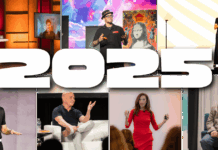Article by Jim Carroll, Leading Global Futurist, Trends & Innovation Expert & Authority on Rapid Business Model Changes and AI
AI! It’s THE topic of 2023! Already, just a few months into the year, it’s already ‘all AI, all the time!’ Have you ever seen a topic take on such dominance in the industry?
No doubt, as an event planner, it’s on your mind this year pretty often — and you, like just about everyone else, are stunned by the speed with which artificial intelligence has suddenly come to the forefront. You’ve been busy experimenting with ChatGPT to see how it might be used to help out with some of your event planning and management; might have used a few image generator tools for some artwork; and are keeping a finely tuned ear-to-the-Web to keep an eye out for all the reports as to how AI is going to provide opportunities in your day to day activities.
In my own case, I’ve recently been using ElevenLabs, an AI voice generator, to do the voiceover work for a series of promotional videos, and to experiment in this complex new world, recently generated a video avatar over at Synthesia who conducted an interview with me from my virtual broadcast studio. It’s an interesting time to be a futurist to see many predictions come to life — albeit at a speed that is simply staggering!
“All of us who are involved in the event industry need to work with these tools, experiment with them, understand them, and get an ongoing idea of how they can help us in our day job.”
And there is no doubt that AI, as a topic, is probably quickly making its way onto your event agenda this year, and you are busy finding speakers and topic experts to help your attendees understand this complex new world.
Many of the events so far seem to be taking apart ChatGPT, and highlighting the tools and tricks of navigating through this complex new world — and that’s an important first step.
And yet, as you know, this new era presents both promise and peril to every single organization, industry, and profession — and you will soon be finding that you are thinking ‘beyond ChatGPT’ to the real, strategic implications of this complex new world.
As a futurist, that’s where my mind has been racing too, and I’ll offer you up just two of the many tracks that we need to be thinking about the acceleration of knowledge, and the disconnect between hype and strategy. Let’s dig in!
The Acceleration of Knowledge
Over my 30+ year career as a futurist, I have spent a lot of time in CEO leadership meetings and as the keynote speaker at conferences and events speaking about the acceleration of knowledge.
We live in the era of the acceleration of all knowledge. These are the trends that define the future:
1. Rapid knowledge obsolescence
2. Rapid knowledge emergence
3. The disappearance of existing careers due to #1
4. The rapid emergence of new careers due to #2
5. An ongoing need for continuous knowledge replenishment because of #1-4
6. The result is the arrival of a need for just-in-time knowledge
7. And a world in which learning is what most adults will do for a living
All happening in the context of the fast emergence of new micro-careers because of specialized knowledge and an economy that succeeds through knowledge deployment. All demanding a fundamental transformation in knowledge delivery.
Here’s a fun fact about knowledge in just one industry: prior to COVID, it’s estimated that the volume of medical knowledge was doubling every 6 to 8 years. It’s now estimated to be doubling every 78 days, if not faster! No one medical professional can keep up; all medical knowledge is almost instantly out of date, replaced by new insights, new forms of diagnoses, new methodologies, new forms of treatment, and new forms of measurement and analysis.
Medical professionals are now increasingly reliant on their knowledge navigation skills – the ability to absorb that which is new is fundamental to success.
Now add AI into the mix of this tsunami of knowledge acceleration. You’ve seen this in the programs and agendas you’ve put together over the years; your association conferences have focused on the knowledge challenge, and your corporate events have examined the HR implications of increasing knowledge specialization.
But are you thinking now about where this new world of AI-generated knowledge takes us? We are headed for an absolute tsunami of knowledge acceleration — and not only is there going to be more coming at our members at a faster pace, but the accuracy and validity of much of that AI-generated information are going to be questionable. What is the impact on your industry, or the profession whose events you manage?
I’ve long pointed out on stage that most associations now represent industries for which “you need to deliver knowledge that you aren’t yet aware of, for jobs that don’t yet exist, to a group of people who don’t know that they will need it. And you need to do it yesterday!”
That’s the context of knowledge everywhere — and in the context of the acceleration of knowledge via AI, that issue has just become much more complex.
“If it hasn’t happened already, virtually every single event platform — event management, attendee registration, and more — is suddenly going to become AI-enabled.”
Think about it — if we layer AI on top of the reality of knowledge exponentiation, AI is exponentiating the exponentiation! In that context, of all industries, healthcare, medicine, and pharma have already been the industry most impacted by accelerating AI.
ChatGPT, Stable Diffusion, Midjourney, and all the other technology that is in the press these days are massively disruptive. The future of the way we search and interact with information is set to change in massive ways. And yet, with all the attention on that, few folks are thinking of the other big issues that have already been unfolding in every industry and profession as AI continues its relentless march forward.
What does this mean? I don’t think AI as an agenda topic will be a one-and-done type of topic. You will be dealing with the disruptive impact of AI as a massive societal trend for years to come, at the same time that the Internet has disrupted so many industries over the last several decades.
What this means is that you should not only keep an eye out for the tools that might help you with your day job as a planner, but you need to keep your vision sharp thinking through the strategic AI implications you will need to bring to your podiums and events!
The Hype-Opportunity Imbalance
Speaking of AI tools, there are a LOT of them.
All of us who are involved in the event industry needs to work with these tools, experiment with them, understand them, and get an ongoing idea of how they can help us in our day job. That’s why I’m using an AI voiceover, and why I had an AI avatar interview me. It helps me keep up with how fast things are evolving.
But we also need to be careful not to get caught in the trap of excessive hype. Like any technology, AI is real, but it will also take some time to mature and provide real sustainable opportunities.
That’s why the other issue I spend a lot of time thinking about has to do with the massive hype that now surrounds everything having to do with AI.
Let me start here: already there is an imbalance in the technology/strategy universe when it comes to AI. What is it?
Carroll’s Law of Accelerated Imbalance: When the pace of development and availability of new software vastly outstrips the ability of people and organizations to deal with it.
That’s where we are with AI at this very moment, and it is fascinating to watch!
How fast is AI moving? A few weeks ago I mentioned a website that didn’t exist 6 months ago – that featured 5,500+ AI tools.
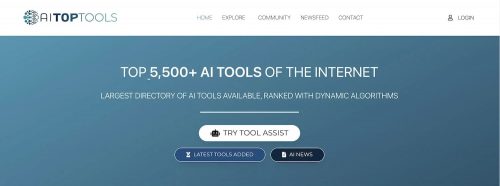
Oh, wait, that was two weeks ago. I just checked it again on Monday when I did a mailout to clients, and it’s up to 9,000!
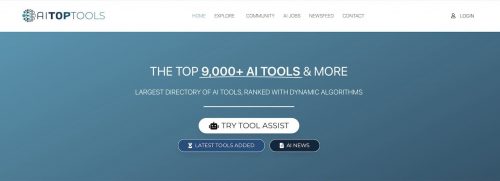
This morning, 3 days later, it’s up to 9,500 tools.
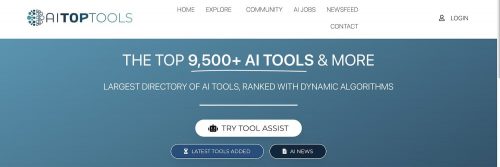
The site is a useful resource that leads to a vast variety of mostly personal AI tools – stuff having to do with productivity, scheduling, video, audio, and design. It’s indicative of the number of new startups built around fascinating new ideas to exploit the sudden new arrival of tools around ChatGPT, text-to-image, text-to-video, and yes – text-to-music tools.
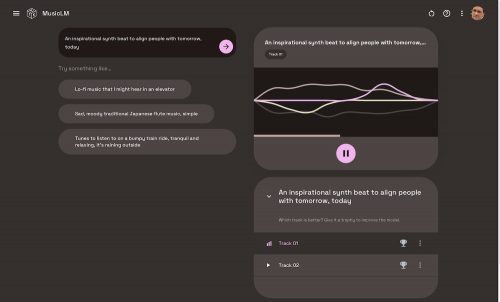
And so, for example, I now have access to the Google AI “Test Kitchen”, and can do a simple text-to-music command. So here I’ve asked for “An inspirational synth beat to align people with tomorrow, today.”
We are witnessing the emergence of magic – but, there is so much happening that it is difficult to keep track of!
On the corporate side, the same thing is happening. My attention was drawn to a post on LinkedIn from someone I follow from the software company SAP; it was about their new AI-related software releases, which are being featured in their global Sapphire product updates this week.
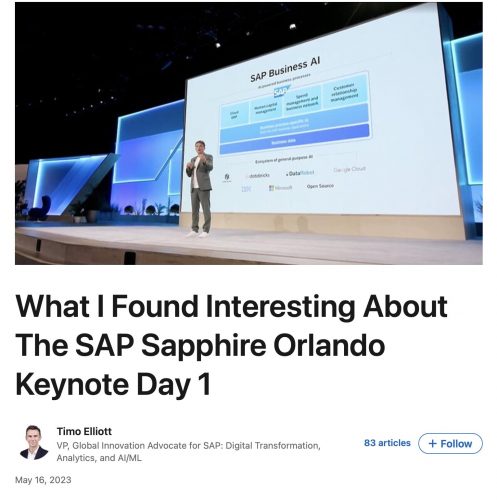
Timo commented: Unsurprisingly, one of the first big topics was the rise of Artificial Intelligence. SAP has been embedding AI into lots of different areas for many years now, in areas like logistics, finance, travel receipts, etc. A lot of this is already taken for granted because “it just works”. But of course, the latest technology changes mean new business opportunities and the main SAP AI product page has been updated to include new AI application examples and messaging.
He referenced SAP’s new AI roadmap: A new Generative AI Roadmap page and a more detailed blog post give some examples of how generative AI can benefit existing business workflows, including helping deal with freight documentation (in SAP Transportation Management), write job descriptions (in SAP SuccessFactors Recruiting), or find best-matching processes (in SAP Signavio Process Transformation Suite).
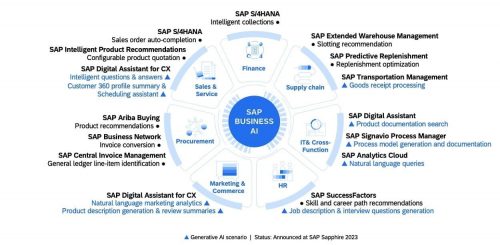
Most every other major corporate software vendor — the folks who build the stuff that runs the corporate world — have a similar marketing story and spin, and have been busy with a similar integration of AI technologies into their products. But suddenly, it’s the marketing buzzword du jour. In other words, we are now in the era of ALL AI, ALL THE TIME.
What does this mean for you? If it hasn’t happened already, virtually every single event platform — event management, attendee registration, and more — is suddenly going to become AI-enabled. The marketing pitch will be extreme. But what does it really mean? What will be real, and what won’t be? When should you invest?
The word ‘overwhelmed’ is quickly coming to define anything having to do with AI – new stuff is coming at us at a blistering pace, and organizations and executives are feeling like they exist in an absolute firehose of new ‘stuff.’ This means that, essentially, we are here:
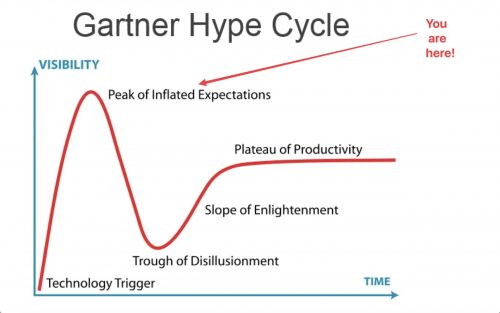
It’s always interesting to watch when Carroll’s law comes into play, and the excessive hysteria outstrips the ability of organizations to deal with the opportunity. It never ends well for a time, until we get to the Plateau of Productivity.
Don’t get me wrong — there is something fundamentally transformative occurring here, and this is one of the most seismic, disruptive trends to have occurred in decades. It IS comparable to the arrival of the Internet and the disruptive steamrollering of industries which then ensued over the next three decades. It’s just happening… faster.
That’s why I’ve positioned myself with my AI-focused website to offer ‘strategic clarity’ — the insight that CEOs and association executives need to provide their teams.
There’s a lot of tremendously exciting stuff going on, but without linking it to a strategic purpose, organizations will end up spinning their wheels. The concept is getting a great response – executives don’t want toys, they want clarity; they want to cut through the confusion; they want to transition from feeling overwhelmed to being in control.
What an exciting time to be a futurist! And what an exciting time to be an event planner — your agendas are going to be rich, evolving, and fast-moving!
Jim Carroll is “the Futurist that CEOs trust.” Over a 30-year career, he has been booked regularly by CEOs and senior executives of major organizations worldwide, to provide an opening or closing keynote or leadership talk on highly customized topics. None other than NASA has booked him – twice – for a talk on ‘the future of space.” Other clients include the World Bank, Zurich Insurance, Nikon, the BBC, Disney, Pfizer, Chrysler, Volvo, and hundreds more.


